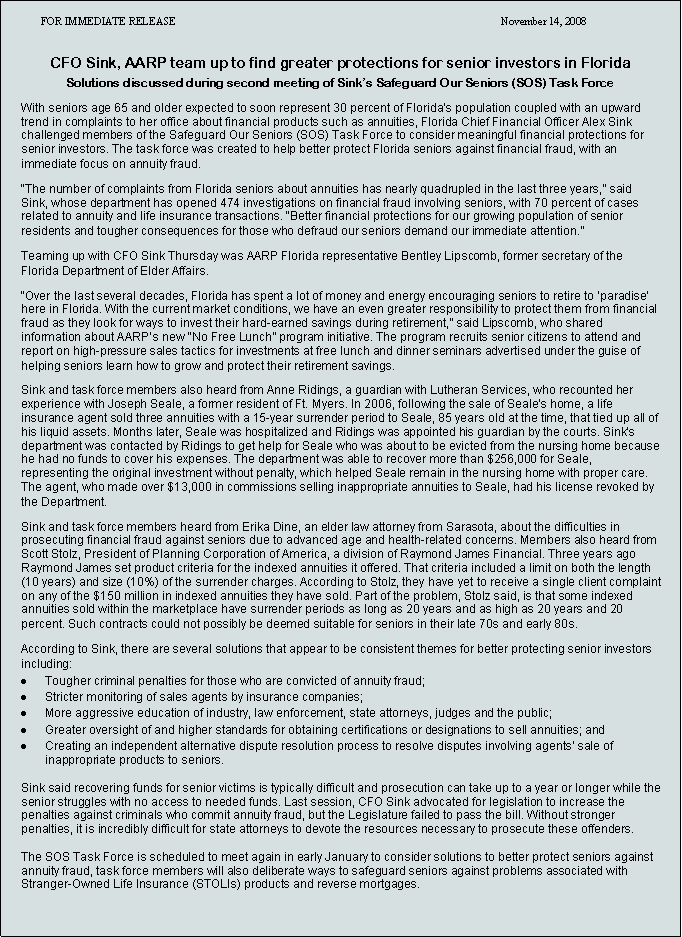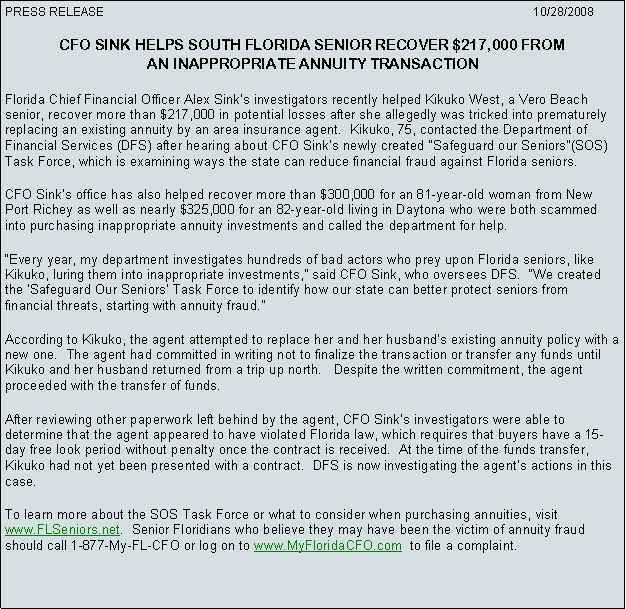|
Introduction to Senior Suitability |


|
"An annuity is a very serious business; ..." Mrs. Dashwood, Sense and Sensibility, Jane Austen
Had Jane Austen lived in the 21st century, her Mrs. Dashwood might have added: "and very complicated, too." As most financial advisors can attest, annuities have evolved into very complex financial instruments. That complexity has stirred up a debate. On one hand are those who can list 10 good reasons why everyone should invest in annuities, while an equal number of advisors have lists of reasons why no one should invest in annuities, ever. As with most debates, the truth can be found somewhere between the two extremes.
At one time, an annuity was a simple concept -- it was simply a series of payments. The word "annuity" comes from the Latin word for year, annum. Initially, an annuity was a fixed annual payment paid to the recipient for the remainder of his or her lifetime. It was simply a type of pension (and what concerned Mrs. Dashwood was that once her husband agreed to pay his half-sisters an annuity, he would be "on the hook" to make annual payments for the rest of their lives — a very serious business, indeed).
Today most annuities pay monthly income, and the word “annuity” has come to describe any stream of payments for a guaranteed period of time. The payout period may be fixed, such as ten years, or the annuity period can be measured in terms of the recipient's life. The concept of an income stream that lasts a lifetime is, for many, a very comforting thought. There are, however, financial advisors who twist this reassuring concept into a fear-driven sales pitch: "What if you outlive your income?" Such sales practices, coupled with the complexity of today's annuities, have prompted regulators to enact new suitability rules for advisors who recommend the purchase of annuities to their clients.
In Chapter 1 we will explore updates to Florida’s new suitability requirements. In Chapter 2 we’ll review some of the more complicated features of annuity contracts that may affect whether an annuity is suitable for a particular client. Chapter 3 discusses potential annuity investors, their investment objectives and other factors that may affect their decision to purchase an annuity. Chapter 4 addresses the regulatory framework in which the annuity industry operates, and specific laws and rules Florida agents should be aware of.
Before we start, please review the following two press releases issued by the Florida Department of Financial Services. As you can see, the suitability of annuity recommendations (or lack of suitability in these cases) can have major financial and personal consequences for annuity purchasers — and the Department has taken its responsibility to protect the annuity buying public very seriously. |

